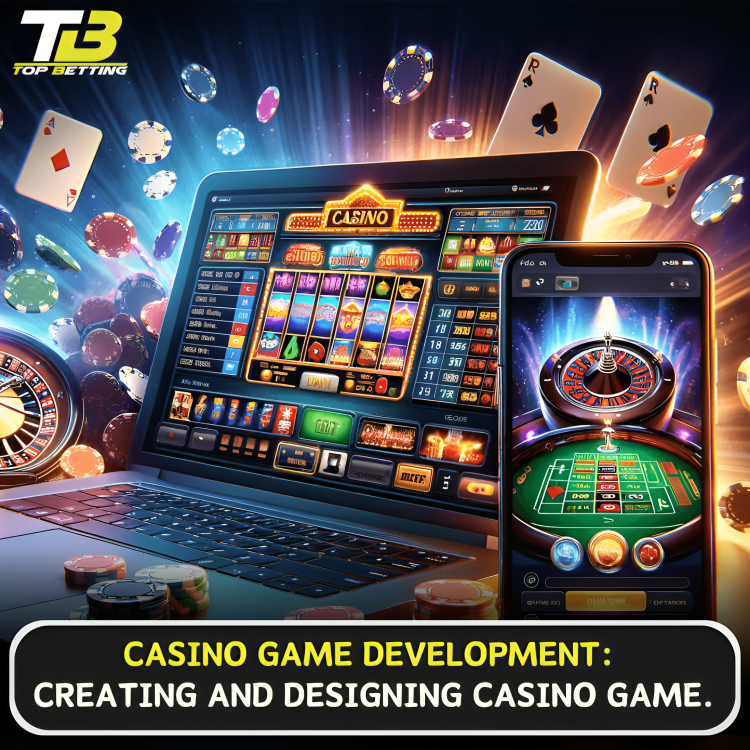
Casino Game Development
Are you ready to dive into the thrilling world of casino game development? The market for casino games is booming, with players constantly seeking new and engaging experiences. Understanding the concept of casino game design is essential to create captivating games that resonate with the target audience and keep them coming back for more.
Creating a successful casino game involves a meticulous process that starts with strategic planning. From selecting the perfect theme to crafting engaging gameplay mechanics, every decision impacts the overall player experience. Implementing cutting-edge technologies and integrating stunning visuals and sound effects are crucial elements that elevate the game to new heights of entertainment.
In today’s competitive online gambling industry, game developers must stay innovative to stand out from the crowd. By keeping abreast of the latest trends and incorporating unique features, developers can attract and retain players in this dynamic landscape. This article will provide valuable insights into the intricacies of casino game development, offering a comprehensive understanding of the process behind these entertainment masterpieces.
The Market for Casino Games
The market for casino games is vast and diverse, catering to a wide range of players with varying preferences. From classic table games to modern video slots, there is a game for every taste. The popularity of online casinos has surged in recent years, driving demand for high-quality and innovative games that offer immersive experiences. Game developers must stay attuned to player expectations and market trends to create games that resonate with the audience.
Developing a deep understanding of the target demographic is essential for crafting successful casino games. By analyzing player behavior and preferences, developers can tailor games to meet the expectations of their audience. Whether it’s themed slots, card games, or virtual roulette, each game should offer a unique experience that keeps players engaged and entertained. With the right blend of creativity and technical expertise, developers can create games that capture the essence of the casino experience.
In a competitive market, differentiation is key to success. By offering innovative gameplay features, stunning graphics, and rewarding bonuses, developers can set their games apart from the competition. The ability to adapt to changing player preferences and technological advancements is crucial for staying ahead in the fast-paced world of casino game development.
Understanding the Concept of Casino Game Design
At the core of every successful casino game is a well-thought-out design that balances creativity, entertainment, and player engagement. Casino game design encompasses a wide range of elements, including theme selection, game mechanics, user interface, and audiovisual effects. Each aspect plays a crucial role in shaping the player experience and determining the game’s success.
The first step in casino game design is choosing a compelling theme that resonates with the target audience. Whether it’s an adventurous treasure hunt, a glamorous Las Vegas casino, or a mystical fantasy world, the theme sets the tone for the entire game. A well-executed theme creates a cohesive and immersive experience that draws players into the game world and keeps them engaged.
Game mechanics are another critical component of casino game design, defining the rules, interactions, and rewards that drive player engagement. Whether it’s spinning reels, dealing cards, or placing bets, the gameplay mechanics should be intuitive, exciting, and rewarding. Balancing skill and chance is essential to create a dynamic and engaging gameplay experience that keeps players coming back for more.
User interface design plays a vital role in ensuring a seamless and intuitive gaming experience. From navigation menus to in-game controls, the user interface should be user-friendly, visually appealing, and responsive. Clear and concise instructions, interactive elements, and engaging animations enhance the overall player experience and make the game more enjoyable to play.
Steps to Create a Casino Game
Creating a successful casino game requires a systematic approach that encompasses multiple stages of development. From initial concept ideation to final deployment, each step in the process is crucial to bringing the game to life. By following a structured development framework, developers can streamline the creation process and ensure a high-quality end product.
The first step in creating a casino game is defining the game concept and core mechanics. This involves brainstorming ideas, conducting market research, and identifying the target audience. By clarifying the game’s objectives, themes, and gameplay features, developers can establish a solid foundation for the rest of the development process.
Once the game concept is defined, the next step is to create a detailed game design document that outlines the game’s mechanics, rules, assets, and development timeline. This document serves as a roadmap for the development team, providing clear guidance on the game’s structure and content. Collaborating with artists, programmers, and sound designers is essential to bring the game design document to life.
Casino Game Development Platforms and Tools

In the world of casino game development, choosing the right platforms and tools can significantly impact the development process and the quality of the end product. From game engines to software development kits, developers have a wide range of options to choose from. Selecting the most suitable platforms and tools for the project requirements is essential to ensure a smooth and efficient development process.
Game engines such as Unity, Unreal Engine, and Phaser provide developers with powerful tools for creating immersive and interactive casino games. These engines offer a wide range of features, including graphics rendering, physics simulation, animation tools, and audio management. By leveraging the capabilities of game engines, developers can focus on game design and gameplay mechanics without getting bogged down by technical details.
Software development kits (SDKs) are essential tools for integrating game features, services, and monetization options into casino games. SDKs for analytics, advertising, in-app purchases, and social features help developers enhance the functionality and performance of their games. By integrating SDKs into the game development process, developers can maximize player engagement, retention, and monetization.
Importance of User Experience in Casino Game Design
User experience plays a pivotal role in the success of casino games, influencing player engagement, retention, and monetization. By prioritizing user experience in game design, developers can create games that are intuitive, immersive, and enjoyable to play. From user interface design to gameplay mechanics, every aspect of the game should be tailored to enhance the player experience.
One of the key elements of a positive user experience is a user-friendly interface that is easy to navigate and visually appealing. Clear and intuitive navigation menus, responsive controls, and interactive elements enhance the usability of the game and make it more accessible to players. By simplifying the user interface and removing unnecessary clutter, developers can create a seamless and enjoyable gaming experience.
In addition to interface design, gameplay mechanics play a crucial role in shaping the user experience. Engaging gameplay features, rewarding challenges, and dynamic progression systems keep players invested in the game and encourage continued play. By balancing skill and chance, developers can create a compelling gameplay experience that appeals to a wide range of players.
Testing and Refining Your Casino Game
Testing and refining are essential stages in the casino game development process, ensuring that the game meets quality standards and player expectations. By conducting thorough testing and gathering feedback from players, developers can identify and address issues, optimize gameplay mechanics, and enhance the overall player experience. Iterative testing and refinement are key to creating a polished and engaging game.
The testing process begins with internal testing, where developers evaluate the game’s performance, functionality, and stability. By conducting rigorous testing across different devices, platforms, and network conditions, developers can identify bugs, glitches, and performance issues that impact the game’s quality. Fixing these issues early in the development process helps prevent critical issues later on.
Once internal testing is complete, the game is ready for external testing with a group of beta testers or focus groups. External testing provides valuable feedback on the game’s gameplay, difficulty, balance, and overall appeal. By collecting feedback from players with diverse backgrounds and preferences, developers can gain insights into how the game is perceived and identify areas for improvement.
Legal Considerations in Casino Game Development
Legal considerations are paramount in casino game development, as developers must comply with regulations and licensing requirements to operate in the online gambling industry. From gambling laws to data protection regulations, developers must navigate a complex legal landscape to ensure compliance and mitigate risks. Understanding the legal framework and seeking expert advice is essential for a successful and compliant game development process.
One of the key legal considerations in casino game development is obtaining the necessary licenses and permits to operate a gambling game. Developers must adhere to licensing requirements set forth by regulatory authorities to ensure the legality and legitimacy of their games. Failure to obtain the required licenses can result in severe penalties and legal consequences that can jeopardize the game’s success.
Conclusion and Future Prospects in Casino Game Development

In conclusion, casino game development is a multifaceted and dynamic process that requires creativity, technical expertise, and innovation. By understanding the market trends, player preferences, and development best practices, developers can create compelling games that captivate audiences and drive engagement. With a focus on user experience, testing, legal compliance, and monetization, developers can create successful games that stand out in the competitive industry.











